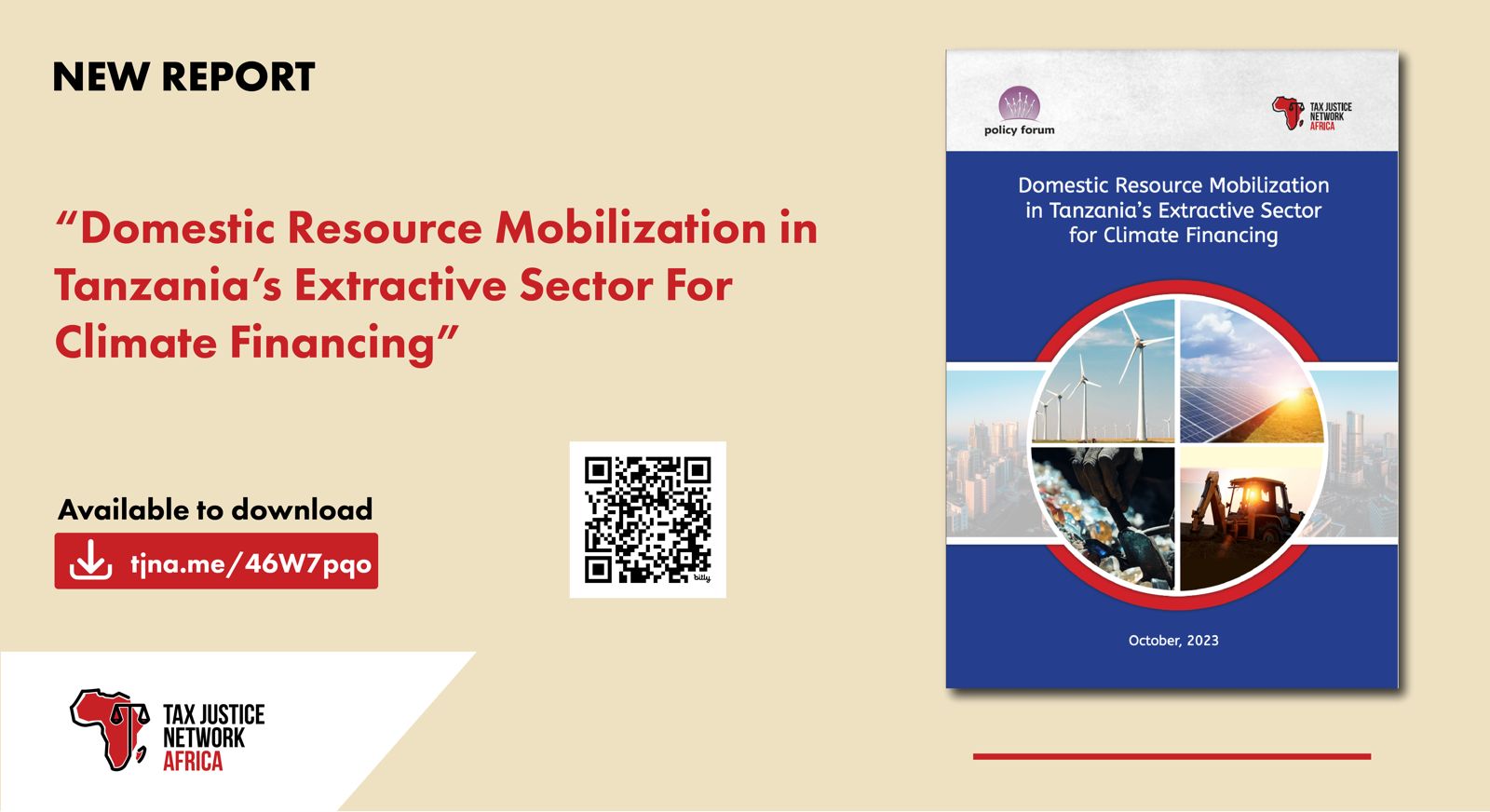Date

A new report released by TJNA and Policy Forum has called on the Tanzanian government to heighten its efforts and investments to combat illicit financial flows in the extractive sector. The report released in November 2023 notes that maximising domestic resource mobilisation for financing climate action in Tanzania can be a reality if the country puts in place measures to sustainably harness the abundant deposits of transition minerals it is endowed with.
The report notes that like most developing nations, Tanzania has experienced severe effects from climate change, with floods and droughts destroying infrastructure, affecting agriculture, and other sectors critical to the economy. As a result, the country is part of the global agreements to fight climate change and is implementing several climate-related policies such as the National Climate Change Strategy, the Five-Year Development Plan III, the National Environmental Master Plan for Strategic Interventions, and the Nationally Determined Contributions.
The report adds that with an abundance of green minerals, the extractive industry in Tanzania could be used to spur a green revolution as well as economic growth by enhancing the country’s domestic resource mobilisation efforts. The country’s fiscal revenue has grown over the years with a notable contribution from the extractives sector. This provides an opportunity for Tanzania to use domestic revenues to finance climate action.
According to the report, the extractive sector has been identified as one of the greatest polluters in the country and can contribute to climate financing efforts through taxes collected from the sector. It also called on Tanzania to develop a unique instrument to fund climate within the country’s fiscal regime.
However, the report notes that the country’s ability to mobilise resources domestically from its extractive sector has been undermined by illicit financial flows and revenue leakages despite attempts to address this through tax policy reforms.
The report urges Tanzania to embrace transparency and accountability in the management of revenues from the extractive sector. It also makes some of the following recommendations that Tanzania can consider in managing taxes from the extractive sector;
-
Stop awarding harmful tax incentives to the extractive sector.
-
Enter into more favourable and beneficial bilateral investment treaties.
-
Establish a carbon pricing mechanism in Tanzania to finance climate adaptation and resilience.
-
Establish green taxes on activities, products and practices that are carbon-intensive to internalise carbon emissions.
-
Ringfence some of the revenues from the extractive sector to finance climate adaptation and resilience in Tanzania.
Read and download the full report: tjna.me/46W7pqo
For more details on the report please contact mnsenduluka@taxjusticeafrica.net